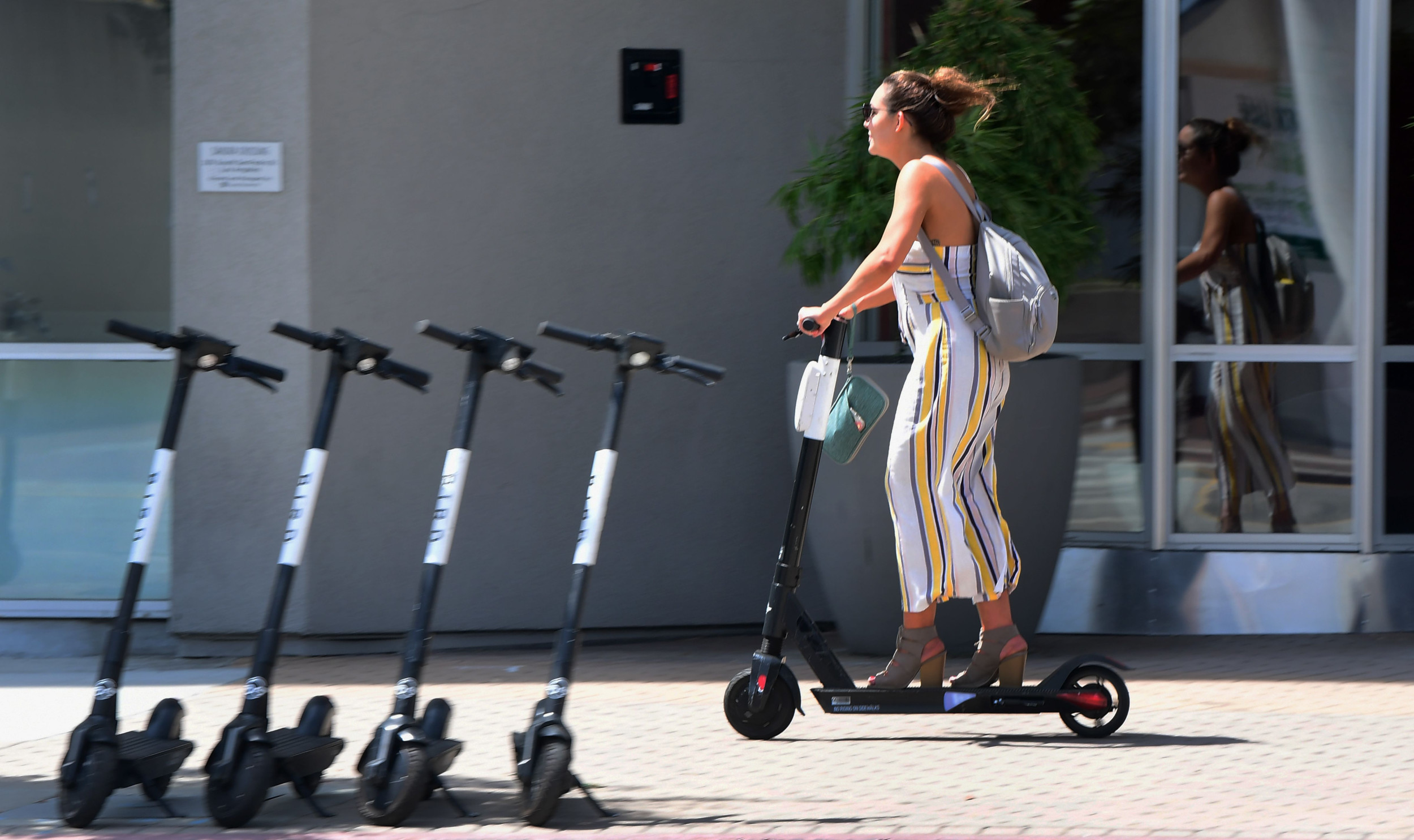- cross-posted to:
- [email protected]
- [email protected]
- [email protected]
- cross-posted to:
- [email protected]
- [email protected]
- [email protected]
according to McKinsey. “And for those Gen Zers who decide that driving just isn’t for them, they can keep themselves busy with TikTok in the passenger seat—or get behind the wheel in the metaverse.”
Be a good consumer and accept our thought control.
The ‘Get Behind the wheel in the metaverse’ proves this article is absolute garbage, and just a fluff piece for Zuc the Cuck.
Who the fuck gets “behind the wheel in the metaverse”?
Great question - but semi related, I really enjoy sim racing despite rarely driving a car in real life (maybe once a fortnight).
The metaverse doesn’t appeal to me, or most people, but there’s something to be said about jumping in VR and taking a car to a track virtually with a good force feedback wheel, nice load cell pedals and a H-pattern shifter.
Heck I even enjoy euro truck simulator from time to time.
@loutr @Phoenix3875 “get behind the wheel in the metaverse” a phrase used by the utterly deranged
Mark Zucc, maybe a few investors’ kids
Imagine that! I wonder why.
Lol cause no one can afford to live let alone buy a car…
If you’re working from home then ubering everywhere is cheaper than insurance for a new driver and once you put gas plus the cost of the car into the equation I totally understand this.
This is an easy thing to say, but ride-sharing apps price gouge ridiculously. Have you done the math on this for the average person’s annual needs, or does it just “feel” true? Also I assume your groceries and other regular shopping needs are all getting delivered in this scenario, so need to work all the delivery overhead in annual costs as well. I wish we could get rid of individual cars, but not sure this adds up…
Also, curious on the reality of this in big cities versus more rural areas
I pay about 12-20 dollars for a trip to or from the airport in my city. Let’s be quite generous and say I only need to take a trip like that once a week, and all my other needs can be met via public transportation.
That’s comically untrue in the Midwest but it holds true in places like Baltimore at least for some.
It would take 9 months of similar rides to equal what I spend on my car in a single month, including the loan, gas, and insurance.
Even if I took an under to and from work every single day which incidentally is about the same as a trip to the airport, it would cost half of what I put in to my car.
That’s true for me, but probably not everyone. I have a newer, upper mid range car that’s not great on gas mileage. And of course, I need my car a lot more frequently than just the ten trips a week. But there’s a string argument to be made in cities where public transit is even halfway decent for ditching a car all together and ubering when you need to get somewhere the bus doesn’t stop.
If you live within 1 mile of a grocery store you could easily walk, and you don’t need anything else on a regular basis. Use a bicycle and 5 miles becomes just as easy. People lived thousands of years without cars. The problem is our cities are built around cars, and they’re built poorly because of it.
You could easily walk there, yes. But walking back again? With 15kg of groceries? That gets tiresome.
The fact that it feels tiresome is worrying me. That should feel like nothing. 15 kg is not all that much (initially wrote “a joke”, didn’t realize that might sound disrespectful to some), unless you are either 12, 92, or really out of shape.
Have you tried carrying what equates to a toddler by one hand for 3km? Them plastic bag carrying handle bits are going to be digging into your fingers, friend. These days it won’t matter so much of course because the fingers will be frozen anyhow.
Frankly I haven’t used a shopping bag for years because I prefer collapsible cases (approx 40x60 cm) but economically those are even worse to carry farth than, say, 50m.
Plastic bags? I just use my backpack
Why would I carry my groceries in a plastic bag or a collapsible box when I can just use a backpack? I can easily carry 15kg in my backpack.
I mostly go shopping with my bike though. I have huge bags that attach to the carrier and that can fit about a week of groceries for two people. I can transport even more with my bike trailer if I need to.
I might be a bad example indeed. I carry a lot of things in often quite unusual ways. As a male Paramedic working inner-hospital shifts in a 3000 bed hospital complex, well, there is a lot to carry around. And most things don’t have handles either; some resist.
I’m not good with cases, nor shopping bags. I use bags with long handles that I can hang from my shoulders. 12 kg per side won’t even make themselves felt.
Boxes are good to carry to a car.
The talk was about 1 km though, not three I believe? I might be wrong.
Anyhow, a good knapsack with a solid bottom. Two bags with long loops. I can carry 35 kg like that easily. In basic training, we carried that load for 20 km and more.
When I got my new barbells recently, I rented a car. My bench and rack I had delivered.
You cooking for a whole gym or what?
You shop daily or what?
A couple of litres of milk, perhaps ditto soda, some canned goods and frozen items … easily 10 kg. Then add buying in bulk when there’s special offers.
If I lived about a mile I could shop daily. That’s an effortless walk. On the occasion I buy heavy liquids, backpack or bicycle.
Instacart bro. Groceries are the easiest thing to get
I’m going to download the uber app when I’m not on some miserably slow internet connection and do the math, because I’m curious if it’s cheaper or not.
Right now, worst case scenario is if I have to drive my Samurai to work. It gets ~20 mpg. With insurance and gas and maintainence put together I’m spending about $4.13 to drive to work for one day.
I don’t work from home but my sister does and yes she did some thorough calculations. And yeah she’s getting her groceries delivered and Ubers/lyfts pretty much everywhere else. There are also local buses that she takes if they’re useful depending on where she’s going. For example there’s a mall that’s about half an hour away but there’s a bus that goes from half a mile down the road to the mall.
We do the same. Having things delivered or using public transport. Takes a bit longer sometimes. Not a problem. Saves us hundreds of bucks per quarter.
Living in a city should mean exactly that. Cars are for place with poorly developed infrastructure. Grossly generalized.
I dropped driving 20 years ago. Way too expensive if you don’t earn money with it in some fashion. I’m not a home-worker, but I live in a city. Having a car in a city… That just doesn’t feel right. They should be used to bring stuff into a city. Cites should provide their own means of getting around. The few times when I actually needed a car, I rented one. Way cheaper than owning a car.
It’s like owning a golf course to play golf once a week. Well. Something like that.
Insurance rates vary greatly with zip code in Canada. I moved just before I was going to buy a car and when I got quoted over $700 CAD per month to insure a Fiat 500 (new driver over 30) I quickly calculated that taking Uber to and from work daily is going to be much cheaper than insurance alone…
. . . cheaper than insurance for a new driver
I’ve been driving 20 years. No points and no recent accidents. I last paid $1300 for 6 months of car insurance on a Hyundai and it’ll probably go up again next time.
That’s $2600 a year or $50 a week and we haven’t spoken about gas, or parking in some locations. Absolutely Uber is an option, or ebike.
$1300 for 6 months of car insurance
Yikes. I pay $1400 for six months of car insurance on two cars, both of which have comp, collision, and uninsured motorist coverage.
Jesus christ that is expensive.
That’s because you own the number one most stolen car in the world.
61% of Stolen Cars were Hyundai and Kia (same company). Thefts are up 2400% in New York. You basically own a Free Use Cab.
https://jalopnik.com/how-kias-hyundais-became-most-stolen-vehicle-in-america-1850496951
Interesting article but
Thefts are up 2400% in New York
isn’t true. Rochester has a ton of crime compared to other cities in the Northeast.
I mean, I get it. I hate the damned things. I can’t deny their utility, but they’re just not worth it
You could say Gen Z “chooses” a lot of things. Gen Z “chooses” not to buy houses (we can’t afford them) Gen Z “chooses” to be mentally ill (not even 10 years ago, “autism” was just “the weird kid”) Gen Z “chooses” to rent Gen Z “chooses” not to buy food Gen Z “chooses” to let climate change fuck the earth Gen Z “chooses” to not have kids (although here we actually don’t want them, but also couldn’t afford them) and so on.
Are you sure they can’t afford them?

Gen Zers are tracking ahead of their parents’ homeownership rate: 30% of 25-year olds owned their home in 2022, higher than the 27% rate for Gen Xers when they were the same age.
Next headline “Gen Z chooses to let all their choices be made by Choosing to not have enough money!”
I wasn’t driving before it was cool and that was decades ago in the middle of nowhere North Dakota.
Because it’s expensive and sucks if you live in a city. Also, most can’t afford a house out in the suburbs anyways.
“Choosing” is doing some heavy lifting here when gen-z ain’t got no money.
I guess you can check the median age of people getting their driving license first time. If is getting higher, is probably because younger people don’t care enough to get it, because past generations couldn’t afford cars ar 16 neither.
What do you mean? I know plenty of people who worked service jobs and bought cheap used cars in high school.
It just isn’t as feasible now.
Ok, I get you. I love in latinamerica and was using my experience as the standard, when here is a more American/European centric site where experience may vary.
Ah, that makes more sense. My bad on my part as well, the fediverse is certainly not just for US/Europe.
You speak of “heavy lifting” without reading the article explaining in part how the economy may be impacting these choices.
Choosing not to drive then is an incorrect headline whereas unable to afford driving would be more accurate.
Agreed. Moreover, I’d like some more insight in the consumer patterns of Gen Z. A pie chart would be nice including groups like eduction, healthcare, subscription services, entertainment, etc.
I have a feeling, without the data, that a lot of young people are spending way more on novelty and entertainment things than ever before while they’re complaining about not being able to afford things.
Everything I’ve seen has said that Millenials and younger are spending more on experiences and less on things, but also that their purchasing power is much weaker than their parents’ was at the same age. Millenials, I think, have about half the purchasing power as the Baby Boomers did in their 30s and 40s.
Also of note that I just saw the other day is that the price of cars has jumped up about 30% since 2021.
So, not exactly what you’re looking for, but some of the stuff I’ve seen/heard that probably plays contributing factors to this.
I think being priced out of the housing market influences a lot how likely you are to spend your money on experiences. It seems like that’s all young people can afford, the mortgages these days are daunting even for people much older in good positions.
Why buy things when they have to drag them from one flat to another every six months cos of a rent increase or the landlord kicks them out
Good info. Yeah, I’m just curious to see a clear comparison laid out. I think being able to literally visualize it would be more conducive to the ongoing conversation. Tough to trust what one cohort on the internet says about their personal experience. Seems like everyone online is broke yet increasing interest rates tell another story about the market overall.
Yeah, unfortunately, I don’t think one really exists. I’m sure there are people who have done the research, but you’re probably not likely to find the info laid out like that in a major news article or something. There’s also a major generational divide in terms of wealth and a disparity between the rich and poor in the US that’s been described as being comparable to the conditions just before the French Revolution, when a loaf of bread cost the same as the average worker made in a day, so looking at market forces like interest rates and such can paint a very different picture from what the average person is experiencing because of how weighted the averages are by the wealthy.
About a month ago, I watched an unrelated video that happened to have some very well researched info in it on the economic situation of Millenials called The Perpetual Infantilisation of Millennial Women. Great video that I pulled some of the info from for a similar conversation. It’s definitely worth the watch for that info alone. Some of the stuff I remember are things like 43% of Millennials own homes, well below the average of 65% per generation. And of those who don’t own a home, 52% aren’t saving for a house, often citing reasons like poor wages or joblessness, showing that many aren’t buying homes not because they’re buying them later than previous generations, but because for many the idea of owning a home straight up isn’t considered feasible. Another big one is that only 20% of houses are affordable for the average American worker, compared to (I think) 63% in 2016. This kind of stuff has led to Millennials not buying material goods like nice furniture because they’re just going to have to leave it behind when they inevitably move to their next rental.
It’s a really multi-layered issue that definitely goes beyond the “the kids are choosing not to buy cars” or “Millenials could afford a house if they’d stop buying avocado toast or Starbucks!” takes that you often see in the news.
Entertainment Things Are cheaper than they were decades ago whereas housing and Health Care are way the fuck more expensive. Back in your day a computer equivalent to an iPhone cost as much as a house whereas today even a basic house cost what a supercomputer did back in 1965
deleted by creator
IDK why, but this reads like just about what every generation says about a younger generation: bad decisions, worse with money etc.
Even if Gen z were spending a larger percent of their income on luxury items, I’m certain it pales in comparison so their lower average income and higher average housing costs.
I don’t disagree. Which is why I’d like some data.
Your previous comment really reads as “Kids these days can’t afford housing, too busy with their avocado toasts and Netflixes” which is the likely reason for all the downvotes.
I can’t fix people’s narratives. I’m asking for data to illustrate the measurable impact of the economy on people’s personal finance and leisure over the decades.
For one example, to compare 2020 to 1960, what is considered “leisure”, what does that cost, and what percentage of a person’s income is spent on it. I’m not really interested in polls where “Gen Z says they’re struggling to afford a car” because that’s subjective and relative. It’s not at all about questioning their anecdotes; I’m curious what the graph or pie chart looks like over the decades.
I think, and am asking for something to prove me right or wrong simply because I’m curious, that there’s more leisure and luxury available to all people today than ever before. And I feel pretty strongly that the culture of consumerism has grown much stronger over the past 30-50 years making everyone feel like they need to spend more than they were in the first half of the last century.
ProductivityPurchasing Power in The United States peaked in the'70slate '60s.The country’s overall productivity sucks today[see below comments]. I believe the numbers show that we’re all spending more of our income than we ever have before. And for those “earning” a salary based on archaic values set decades ago, it’s certainly logical they’d be most hurt by the culture of consumerism that’s so rampant today.Also, I’d be very interested to compare the graphs to credit card debt over time. It’s too easy to click a button on our phones now to have something charged to a card without the stress of seeing it coming directly out of our checking account. This use of technology, I think, is a real factory for younger people who haven’t grown up learning how to balance a checkbook or the need to save real cash money to make major purchases. The success of services like Mint and Acorn and Chime indicate this isn’t my imagination.
No one likes when someone says your opinion is irrelevant when they’re asking for tangible numbers. I’m well aware that the economy is harder for young adults today. I’m also well aware that most people on the internet are ultra-sensitive and lack reading comprehension. There’s a large segment of the internet that can’t be bothered to read more than headlines and watch ten second TikTok videos. I know younger people aren’t the only ones guilty of this, but I have doubts they’re not the primary culprits.
News in UK today said car insurance for young drivers is now £3000 a year on average ($4000USD)
What? That’s in no way sustainable.
Exactly the point of this post
Yup, at UK minimum wage 17 year olds would have to work 9 hours a week just to pay for car insurance. Then there is road tax, fuel, MOT, repairs, and buying the car in the first place.
Yes. Owning a car is a constant expense. For something that gets used a small percent of the day.
I rent if I ever need a car. The rent by-the-minute schemes near me include charging or fuel, insurance and everything for ~25ct/minute. Ideal for local trips with passengers. Otherwise I bike everywhere in Munich.
Just like us millennials ‘choosing’ not to buy houses.
Got any better systems?
Anarchist communism
Sounds super edgy and fun. Let’s do it bro.
How about we try a little of that European stuff?
Before capitalism we had feudalism!
I didn’t realize that wasn’t capitalism. Interesting. I’ll look into it more
Quantity makes the poison.
Prepare for the next headline saying that “Gen Z is killing the car industry”.
Nah we’re just broke
This is the best summary I could come up with:
“Maybe they don’t want to drive because they’re looking for a sustainable option, such as public transportation, ride-sharing, or e-scooters,” McKinsey analysts wrote.
“It’s also possible that a sputtering economy and inflation tinged their entry into adulthood, discouraging spending on big-ticket items such as cars,” McKinsey said.
But McKinsey analysts point out that previous generations of Americans had also appeared less interested in driving but went behind the wheel of cars eventually.
“It’s too early to tell whether the no-driving trend will hold with Gen Z, especially given the changes happening in the mobility and automotive markets,” McKinsey analysts pointed out.
The automotive industry is changing with the mainstreaming of the so-called shared mobility market, which includes car ride-sharing, scooters, and in the future, self-driving automobiles.
“And for those Gen Zers who decide that driving just isn’t for them, they can keep themselves busy with TikTok in the passenger seat—or get behind the wheel in the metaverse.”
The original article contains 459 words, the summary contains 157 words. Saved 66%. I’m a bot and I’m open source!
Oh my God that last quote is so cringe
This is the way
Now hopefully they start voting in their local elections for politicians who will build transit, bike lanes, and support walkability.
We had a really promising, progressive city councillor run for Mayor who basically tanked their campaign by making investment in cycling infrastructure one of their main platforms.
So, instead, we got a business-as-usual developper friendly mayor who will continue to do nothing to address public transit issues, or improvr cycling infrastructure besides painting a few lines on busy roads.
I think the major issue is that most people see bike lanes as removing their choice to drive, rather than adding alternatives to make driving easier. These people pushing for change need to look at the MAYA
principalprinciple, meaning they use the Most Advanced, Yet Acceptable vocabulary to ease in the transition.Anyone who wants to platform for biking and making better urbanism needs to instead focus their campaign on being fiscally responsible and tackling traffic concerns. If pressed, they can say that there are lots of data showing that small, cheap changes to the road infrastructure can make a large impact in both traffics and taxes.
Principal?
Well yeah, you gotta school them 😜
We all need schooling. We learn as long as we live.
You haven’t met some of my coworkers
No one said what they learned was useful ;P
It is sad but many who want this kind of change end up having their careers ruined as it goes against “the status quo” and the “character of the neighbourhood”
Gen Z is lazy and will die really quickly, along with social media digital economy and the trendy movements they popularised in this post millenial era.
The problem is not cars specifically, but the explosion of capitalism and people’s incomes being unable to keep up with artificial price rises on products and commodities.
Gen Z is lazy and will die really quickly, along with social media digital economy and the trendy movements they popularised in this post millenial era.
This has got to be a joke, right? The rise of cryptocurreny was 100 percent a millenial thing. The ‘trendy movements’ and influencer culture also came from millenials. Gen Z was just forced to grow up in it. Saying a whole generation will die very quickly is pretty strange and spiteful of you. You sound like an old man yelling at kids for doing kid things.
Cryptocurrency, in the pessimistic sense you mean, is not a generation thing, but a capitalist thing born out of those extremist investors and stock market “gurus”. Originally, crypto was made as an alternative way of transactions to SWIFT and similar systems that surveil dissidents and activists, only for the “system” capitalists to kill its reputation.
My observation was not spiteful, but was meant to be a consequence of Gen Z avoiding putting effort (learning how to drive, one example), blindly consuming instead of creating, doomscrolling, garbage physical health, not touching grass, not socialising IRL and so on. All that is just going to lead to a quicker death.
Gen Z is lazy and will die really quickly
At least we’re not too lazy to type our sentences in full.
If you were able to understand the meaning, my internet comment fulfilled its purpose. Internet forums are not a place for English grammar examinations. Go lecture in a classroom.
deleted by creator
I’m right there with them. I spent 7-8 years in a larger city and enjoyed not having a car the entire time. No renting a parking spot or fighting over who gets to block in who with the upstairs or downstairs neighbors. No snow shoveling or scrambling to park on one side for street sweeping.
I’m now temporarily in a place where buses are at an hour interval and only go to 1 place so I took one of the family cars. Despite the car being “free” I’m paying more than an unlimited transit pass on insurance alone, and I have a great rate at the expense of having to let my insurance track my accelerating / braking through GPS/accelerometer (at least for a few weeks before I can uninstall the app and enjoy the lower rate). I’ve had to pay for an inspections, tags, fixing a tint that was legal at home but illegal where I am now (over $100 even if I just had them remove it), and I’m still needing to spend on extras like oil to top up in between oil changes, new wipers, coolant, and it’s looking like it’s almost due for tire rotations, brake and transmission flush, and other regular maintenance which is just another expense.
The car was free and it’s so expensive still. I miss being able to hop on a bus and zone out too.
Who wants to pay 9%+ interest on a car .
My wife purchased a Subaru Legacy Premium new in 2018 with a MSRP of $23,000 and we looked at the exact same model but in 2024 because they added some safety features. The exact trim Premium for 2024 has a MSRP of $31,000k. That’s a 39% increase in 6 years. Same motor, looks nearly identical, just has collision detection and a better center console screen. We could have got those in the top trim in 2018 for $5k more.
We’re getting shafted at all industries.
You don’t really have to buy a new car though, do you? Especially not using a loan. Nearly everyone I know, young or old, poor or well-off has a second hand car.
Didn’t really have to but it was at sweet spot for trade in, $15k, was at the point it need new tires and registration. Tires $600+ and registration in Washington $300.
It was actually seeing $15k trade in that got me thinking about it since it was pretty close to our purchase price. Stupid MSRP went way up.
























